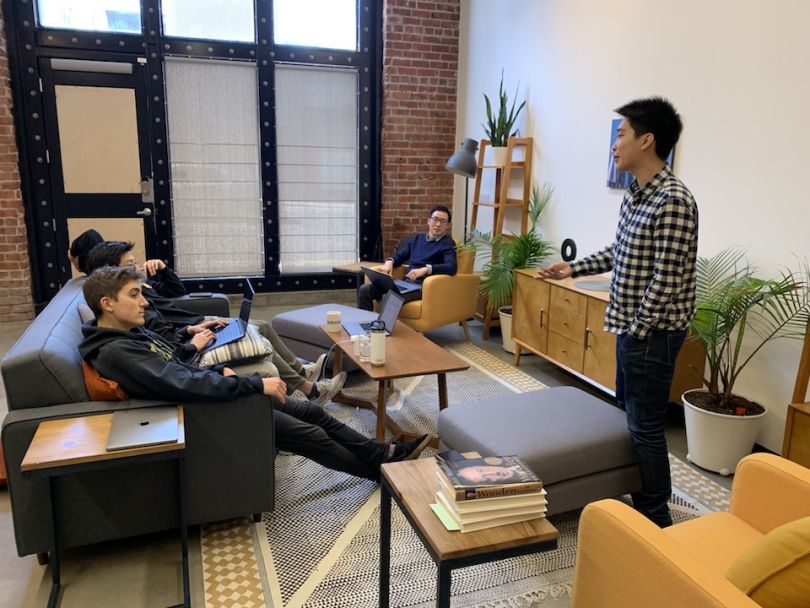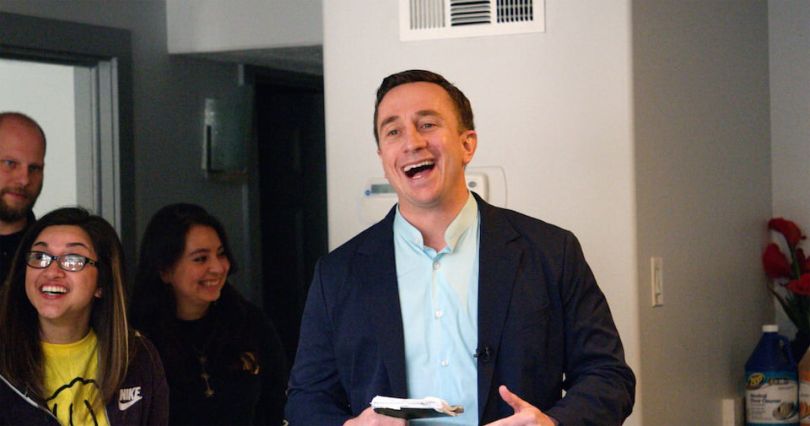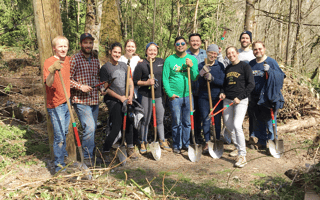In the highly mythologized landscape of tech, think of a business’s approach to securing financing as two different ways of climbing a mountain. On one hand, you have Unicorn Ski Lift, where venture capitalists pay your fare for a series of relatively quick rides up to the summit. The ride is speedy, everyone can see you do it and, if the lift breaks down, you have experienced investors there to help you out.
Alternatively, there is Bootstrapper Trail, a long, winding and self-funded hiking path to the peak, which, for successful expeditions, usually involves a clear route to profitability. The trail is lengthy, austere and — with the media focused on the big-dollar valuations up on the ski lift — rather lonely.
However, for the independently minded entrepreneur, Bootstrapper Trail is a rewarding journey, and has produced some of Seattle’s more resilient tech startups over the last couple of decades. To learn more about the appeal of this less-publicized path, we spoke with bootstrapping founders at four Seattle tech companies — ranging from youthful startups to wizened veterans of the local scene — about what it takes to make it on Bootstrapper Trail. Here’s what we learned.

An independent mindset
Investors don’t just bring piles of cash — they bring experience, mentorship and their own ideas about how a company should run. They can also have big demands, as they seek to maximize the return on their investment.
In the words of Brown Paper Tickets President CTO and Founder William S. Jordan, “Bootstrapping isn’t for everyone. It gives you a lot more control, but it also requires a lot more work and a lot more responsibility.”
His company, a pioneer in the virtual ticketing space, has never accepted a dime of outside funding since it was founded in 2000.
An independent mindset also requires experience. Peter Rex, co-founder and CEO of recruiting, networking and collaboration startup Trustwork, has big plans for his startup. The company’s vision is to “be the world’s largest economy.” Rex previously co-founded an integrated investment and operations company called InvestRes, which manages over a billion dollars in assets, and that experience, combined with a round-the-world trip with his family, helped to form a clear vision of what he wanted to do with Trustwork.
“Seed funding or other structured investments might be an attractive initial option,” Rex told Built In Seattle, “but you should consider not just the potential dilution of your ownership, but also the potential dilution of your ability to achieve your core mission and vision.”

Independence is also important for businesses that are happy with narrower profit margins if it means they can connect better with their users — or, in the case of Fremont-based treasure hunting game Geocaching, their players.
“Bootstrapping has been the right decision for our business because it's allowed us to maintain complete control over the decisions that affect our relationship with the global Geocaching community,” co-founder and President Bryan Roth said, “without the pressure of delivering specific financial returns to investors.”
For brand and trademark protection firm BrandVerity, the bootstrapper’s slow-and-steady approach has given the company time and space to consider its growth. CEO David Naffziger said this is especially important when bringing new people into his team.
“Bootstrapping has enabled us to spend the time necessary to find the right teammates, whose values align with ours and who are committed to helping us build the company that we want,” he said.

Be smart with your cash
So you’ve got an independent streak and a clear, uncompromising vision of what you want your business to achieve. But Bootstrapper Trail only rewards those who can be smart with their limited resources — much of which will come out of an entrepreneur’s own pocket.
For example, Rex has invested $5 million to start-up Trustwork, which now employs around 60 people.
For his part, Naffziger said bootstrapping has allowed BrandVerity to grow at a sustainable rate.
“It has forced us to spend money in the most effective ways possible,” he said. “We spend on the things that matter.”
To be successful, he said to “make sure you have a clear path to early revenue and are committed for the long term.”
Roth said the approach has a way of focusing Geocaching workers on what’s important.
“Bootstrapping has helped to instill financial discipline among all employees,” he said. “Before we can spend money, we must earn it, and understanding this helps us to avoid wasting it on lavish parties, first class flights and other things that aren’t important when serving our customers.”

Be prepared to do the work
Bootstrapper Trail is a lonesome path. There are no investors to guide entrepreneurs or provide the quick cash that can scale a company virtually overnight, and the media tends to let a bootstrapper fly under the radar while it focuses on frolicsome unicorns up in that gondola. The entrepreneurs we spoke with emphasized the work involved with building a company without outside investment.
“Bootstrapping isn’t for everyone,” Brown Paper Tickets’ Jordan said. “It gives you a lot more control, but it also requires a lot more work and a lot more responsibility. You have to find ways to be efficient and more productive, and you have to develop smarter solutions for your customers. You really don’t have a choice in that.”
Without outside validation and guidance to the summit, companies on Bootstrapper Trail need to believe in a vision about where they’re headed, make smart decisions and trust that their chosen path will get them there.
“We believe in the enormous potential of our vision and the game-changing nature of what Trustwork will become,” Rex said.

The rewards
If it sounds tough, that’s because it is. But according to the founders we spoke with, the rewards are worth it.
“You end up with a business that runs more efficiently, produces better products and has genuine value,” Jordan said. “You end up with a business that can’t be created through investment alone.”
Over at Geocaching, Roth said the company had considered outside funding sources in the past, but decided that the benefits did not outweigh the costs.
“For other entrepreneurs who are considering a bootstrapping approach, we suggest taking a careful look at the expectations of outside investors and how they might impact your company and mission — both positively and negatively — before proceeding in either direction,” he said.
And most of all, BrandVerity’s Naffziger said founders need to be prepared to put in the years.
“Building a bootstrapped company takes time,” he said, “but it’s well worth it.”



